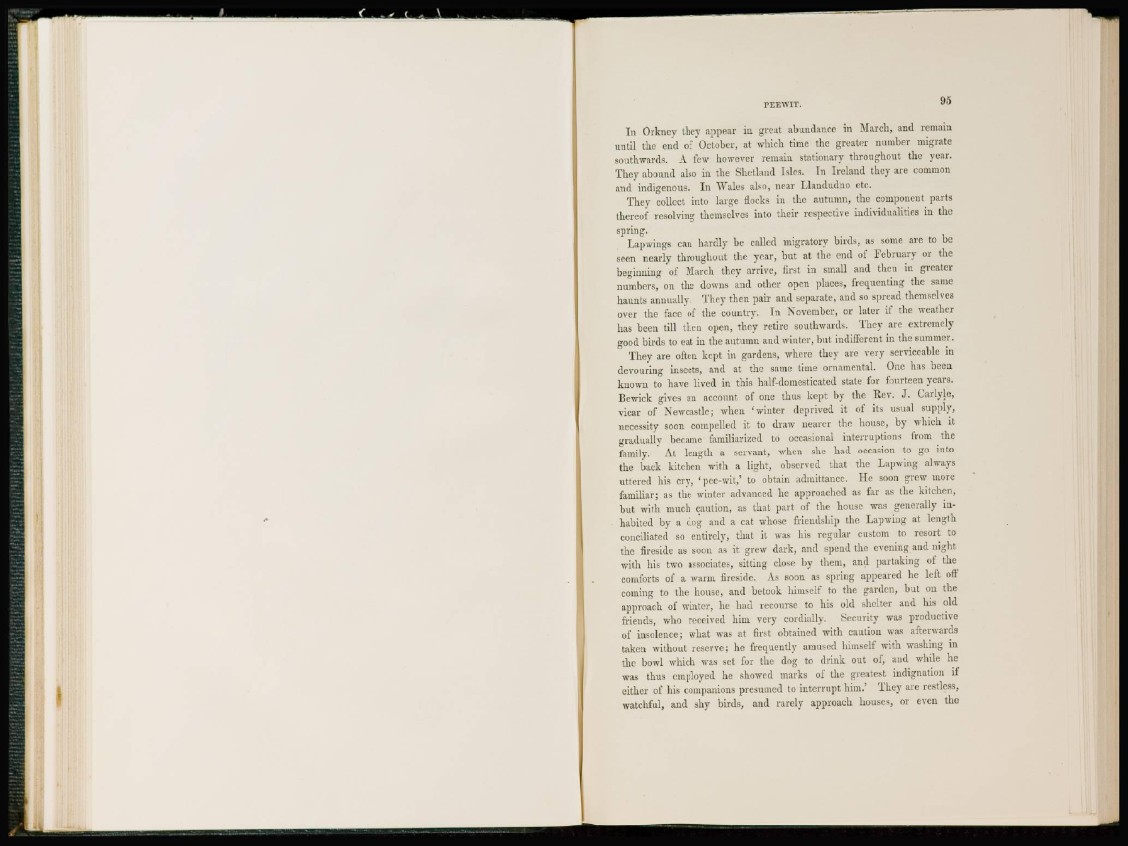
I n Orkney they appear in great abundance in March, and remain
until the end of October, at which time the greater number migrate
southwards. A few however remain stationary throughout the year.
They abound also in the Shetland Isles. In Ireland they are common
and indigenous. In Wales also, near Llandudno etc.
They collect into large Hocks in the autumn, the component parts
thereof resolving themselves into their respective individualities in the
spring.
Lapwings can hardly be called migratory birds, as some are to be
seen nearly throughout the year, but at the end of February or the
beginning of March they arrive, first in small and thcu in greater
numbers, on the downs and other open places, frequenting the same
haunts annually. They then pair and separate, and so spread themselves
over the face of the country. In November, or later if the weather
has been till then open, they retire southwards. They arc extremely
good birds to eat in the autumn and winter, but indifferent in the summer.
They are often kept in gardens, where they are very serviceable in
devouring insects, and at the same time ornamental. One has been
known to have lived in this half-domesticated state for fourteen years.
Bewick gives an account of one thus kept by the Rev. J. Carlyle,
vicar of Newcastle; when 'winter deprived it of its usual supply,
necessity soon compelled it to draw nearer the house, by which it
gradually became familiarized tó occasional interruptions from the
family. At length a servant, when she had occasion to go iuto
the back kitchen with a light, observed that the Lapwing always
uttered his cry, *pce-wit/ to obtain admittance. He soon grew more
familiar; as the winter advanced he approached as far as the kitchen,
but with much caution, as that part of the house was generally inhabited
by a dog and a cat whose friendship the Lapwing at length
conciliated so entirely, that it was his regular custom to resort to
the fireside as soon as it grew dark, and spend the evening and night
with his two associates, sitting close by them, and partaking of the
comforts of a warm fireside. As soon as spring appeared he left off
coming to the house, and betook himself to the garden, but on the
approach of winter, he had recourse to his old shelter and his old
friends, who received him very cordially. Security was productive
of insolence; what was at first obtained with caution was afterwards
taken without reserve; he frequently amused himself with washing in
the bowl which was set for the dog to drink out of, and while he
was thus employed he showed marks of the greatest indignation if
either of his companions presumed to interrupt him.' They are restless,
watchful, and shy birds, and rarely approach houses, or even the